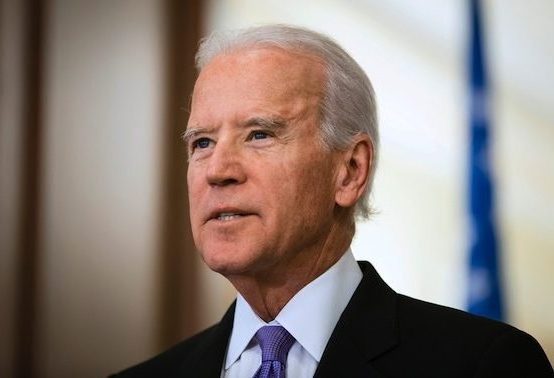Biden’s Ho-Hum Foreign Policy Speech

Joe Biden delivered his first major foreign policy speech as a 2020 presidential candidate earlier today at the City University of New York. Biden said that U.S. foreign policy needed to be “purposeful and inspiring,” but his speech isn’t likely to inspire very many. He began by asserting that “foreign policy is domestic policy and domestic policy is foreign policy.” It is true that there are connections between what the U.S. chooses to do in the world and what it is able to do at home, not least in terms of how our government chooses to use scarce resources and limited revenues, but I’m not sure it is all that useful to collapse the two together. The conflation of domestic and foreign policy wasn’t just a throwaway line at the start of the speech, and that explains why much of the first half of the speech was a laundry list of domestic policy initiatives. It is unfortunate that he spent so much of his time in the speech not talking about foreign policy, because that meant he had to leave a lot out of the actual foreign policy section.
Biden made some fair points about Trump’s embrace of authoritarian rulers, and I certainly won’t argue with him when he describes the president as “dangerously incompetent.” But then the former vice president went overboard by claiming that if he is president he would “remind the world that we are the United States of America and we do not coddle dictators.” If Biden wants to argue that the U.S. should no longer coddle dictators, he will get no complaints from me, but as a description of what our government has done prior to Trump it is simply a fairy tale. This points to one of the weaknesses in Biden’s anti-Trump argument. He wants to attack Trump as being unlike, and much worse than, any other president before him, and so he has to invent a mythical past that lets many previous presidents off the hook for similar or worse abuses. It also reinforces the impression that Biden’s candidacy amounts to an attempt to go back before 2016 and pretend that our political class hadn’t been failing for decades before Trump showed up on the scene. Biden’s framing sends a message of complacency and lack of imagination, and for a candidate who already seems to be out of step with his party that is the last message he should want to be conveying.
It should be possible to attack Trump on his record without whitewashing all of pre-2016 U.S. foreign policy as Biden did. Then again, Biden may not want people thinking about his role in pre-2016 U.S. foreign policy, and that points us to another weakness of his candidacy. Biden has a very long record in the Senate and as vice president, but his foreign policy record over the last twenty-five years is not very good. He did nothing to challenge or answer his critics, and he didn’t acknowledge that he had many any mistakes. Biden didn’t know how to respond to a question about his past support for the Iraq war at the first debate, and today he simply skipped talking about his own foreign policy record:
Did Biden really get through that entire speech without mentioning the Iraq war? Did that just happen?
— Matt Duss (@mattduss) July 11, 2019
There were a few notable commitments that Biden made during the speech that should be acknowledged. He called for an end to the travel ban. Biden said that the use of force should be a last resort used only to “defend our vital interests, when the objective is clear and achievable, and with the informed consent of the American people.” That commitment is a good one, and he should be held to it. He also said, “It’s long past time we end the forever wars,” and he restated his call for ending support for the Saudi coalition war on Yemen. Naturally, he did not mention that U.S. support for the war began when he was vice president. Biden also stated his intention to rejoin the JCPOA if Iran returns to full compliance. Biden’s statements in support of arms control were fine, and his commitment to extend New START was welcome. At the same time, his insistence on North Korea’s denuclearization is every bit as unrealistic as Trump’s current policy.
Biden’s foreign policy speech contained some decent pledges, but its coverage of foreign policy issues was scattershot. No single speech can address all important issues, but despite Biden’s frequent disapproving references to Putin and his one statement about New START I have no idea what Biden’s proposed Russia policy would be. He name-checked some countries and mentioned Latin America in passing, but he said nothing about the crisis in Venezuela or what he would differently in response to it. He berated Trump for being too cozy with authoritarian rulers, but he didn’t tell us how U.S. relations with Saudi Arabia, the UAE, and Egypt would differ if he became president. He checked off the box of endorsing continued aid to Israel, but had nothing to say about the illegal occupation, the settlements, or Trump’s recognition of Israel’s illegal annexation of the Golan Heights. Even if we grant that Biden was painting in broad strokes about general principles, his foreign policy platform seems weirdly underdeveloped and half-baked for someone who has worked on these issues for decades.
Comments